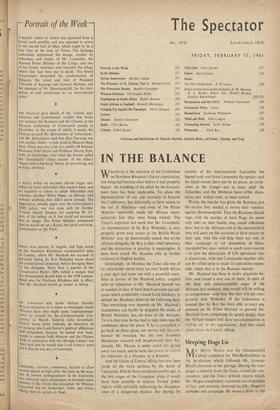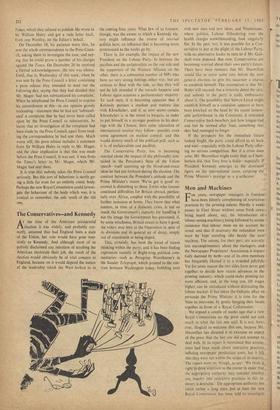Sleeping Dogs Lie
MR. BRYAN MAGEE was the (unsuccessful) Labour candidate for Mid-Bedfordshire in the by-election which followed. Mr. Lennox- Boyd's elevation to the peerage. During the cam- paign, a reporter from the Times visited the con- stituency, and the Times printed reports which, Mr. Magee complained, contained mis-statements of fact, and seriously distortpd his (Mr. Magee's) attitudes and campaign. He wrote a letter to the Times, which they refused to publish. He wrote to Sir William Haley and got a rude letter back, from one Woolley, on the Editor's behalf.
On 'December 18, his patience worn thin, he sent the whole correspondence to the Press Coun- cil,, asking them to investigate the case, and say- ing that he could prove a number of his charges against the Times. On December 20 he received a formal acknowledgement; the rest was silence. Until, that is, Wednesday of this week, when he was sent by the Press Council a letter containing a press release they intended to send out the following day, saying that they had decided that Mr. Magee 'had not substantiated his complaint.' When he telephoned the Press Council to express his astonishment at this—in our opinion grossly misleading—statement that he had not 'substanti- ated' a complaint that he had never been called upon by the Press Council to substantiate, he learnt that no investigation of the complaint had been made by the Press Council, apart from read- ing the correspondence he had sent them. Much worse still, the press release includes a statement from Sir William Haley in reply to Mr. Magee, and the clear implication is that this was made before the Press Council. It was not; it was from the Times's letter to Mr. Magee. which Mr. Magee had sent them.
It is true that nobody takes the Press Council seriously. But this sort of behaviour is surely go- ing a little far even for an entirely comic body. Perhaps the new Royal Commission could investi- gate the behaviour of the body which was, it is ironical to remember, the .sole result of the old one,



































 Previous page
Previous page